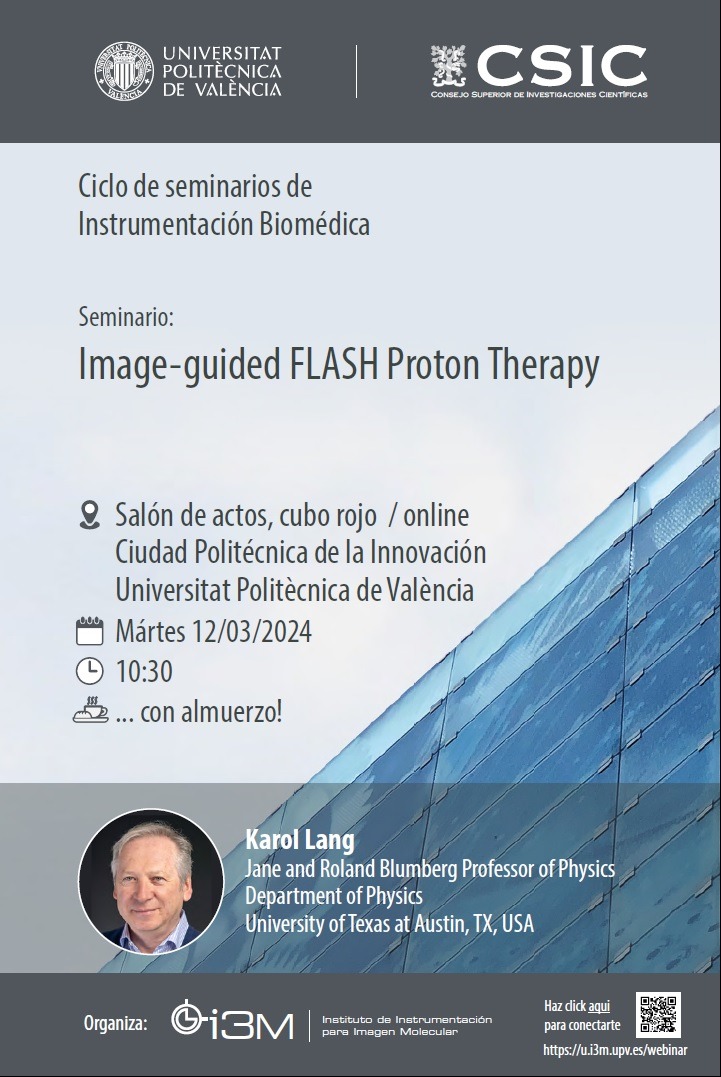Prof. Karol Lang
Lugar: Salón de actos, cubo rojo / online, CPI, Universitat Politècnica de València, Valencia.
Fecha: 12 de marzo de 2024, 10:30 h
Abstract:
SPECT technologies for imaging of therapeutic radionuclides Image-guidance and dosimetry of the in-vivo proton range verifcation is one of the most underinvested aspects of radiation cancer treatment. The scarcity of sensitive instruments and treatment protocols for precision monitoring of effects of beam radiation leaves much room for improvement.
This is despite that such measurements may dramatically enhance the treatment accuracy and lower the post-exposure toxicity, improving the entire outcome of cancer therapy.
In this talk, we will discuss designing and building of an in-beam time-of-flight positron-emission- tomography (PET) scanner to be tested in pre-clinical studies at Proton Therapy Center of MD Anderson Cancer Center in Houston. We will also discuss selected results of recent experiments with FLASH proton beam irradiations of phantoms and other related ideas towards improving and expanding the use of PET detectors, including the total body imaging. This endeavor has been made possible by the support of the U. of Texas – Portugal program at the University of Texas at Austin.
Karol Lang is the Jane and Roland Blumberg Professor of Physics at the University of Texas at Austin, where he teaches and conducts research in experimental particle physics and in nuclear medical imaging. He received his M.Sc. in Physics from the University of Warsaw, and his Ph.D. from the University of Rochester. He has participated in experiments conducted at accelerators at Fermilab, SLAC, and CERN. Currently, he is involved in the Fermilab program to study neutrino oscillations and in experiments designed to search for neutrinoless double beta decay. As a spinoff of this research, he is also involved in a program to employ high sensitivity positron emission tomography (PET) scanners for image-guided proton therapy.
